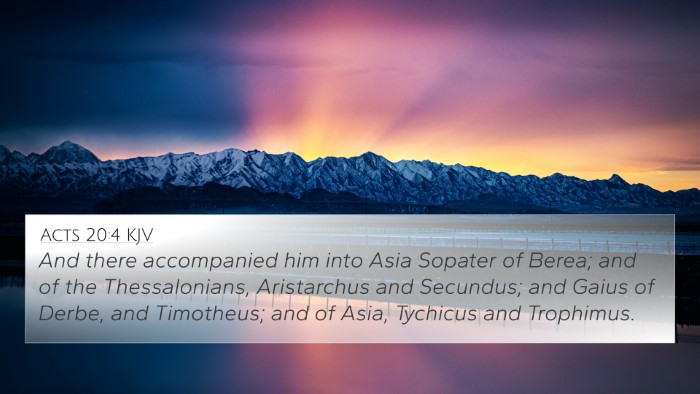Understanding 3 John 1:1
3 John 1:1 states: "The elder unto the wellbeloved Gaius, whom I love in the truth." This verse is a greeting from the Apostle John to a man named Gaius. The use of the term "elder" indicates John's authority in the early Church, while "wellbeloved" signifies a deep personal affection and respect for Gaius. This opening line sets the tone for the entire letter, reflecting themes of love, truth, and community among believers.
Verse Meaning and Insights
The letter of 3 John is primarily a personal missive. The Apostle John addresses Gaius in a way that denotes both a personal connection and doctrinal significance. Below are key insights based on noted public domain commentaries:
- Matthew Henry's Commentary: Henry emphasizes the importance of the personal connection in this letter, indicating that the Apostle John exemplifies a pastoral concern for his flock. Gaius is distinguished here as a beloved member of the Christian community, indicating his significance in the early Church.
- Albert Barnes' Notes: Barnes highlights that Gaius is likely a leader in the early Church, referencing his hospitality and support of the missionaries. The greeting shows John's warm regard and love, reinforcing the theme of mutual support and encouragement among believers.
- Adam Clarke's Commentary: Clarke provides historical context, noting that Gaius is a common name in the New Testament and could refer to several individuals. His role is seen as supportive to the apostolic mission, showing the interconnectedness of believers in advancing the Gospel.
Thematic Connections
3 John 1:1 embodies several key themes that resonate throughout the New Testament:
- Love Among Believers: John's expression of love for Gaius is a recurring theme in his writings, echoing the command of Jesus to love one another (John 13:34).
- Truth in Community: The emphasis on truth in this verse underlines the importance of authentic relationships in the body of Christ, akin to Ephesians 4:15 where believers are encouraged to speak the truth in love.
- Support for Evangelism: The greeting foreshadows the encouragement John will offer regarding Gaius' hospitality to traveling teachers, linking to the support missionary work needs, as seen in Matthew 10:40-42.
Cross-Referenced Verses
To fully understand this verse, it is insightful to explore related Bible verses:
- John 13:34-35: "A new commandment I give unto you, That ye love one another; as I have loved you..." – highlights the call to love within the community.
- 1 John 3:18: "My little children, let us not love in word, neither in tongue; but in deed and in truth." – emphasizes that love must be active and genuine.
- Philippians 1:3-5: Paul expresses a similar affection for the Philippians, showcasing the bonds within the Church.
- 3 John 1:3: "For I rejoiced greatly, when the brethren came and testified of the truth that is in thee..." – reinforcing that Gaius is living in accordance with God's truth.
- Romans 16:23: References Gaius as a host and a key figure in the early Church, supporting the context of John’s letter.
- 1 Peter 4:9: "Use hospitality one to another without grudging." – similar themes of hospitality and community support among believers.
- John 3:11: "Beloved, follow not that which is evil, but that which is good..." – emphasizing moral integrity in Christian conduct, applicable to Gaius’ life.
Concluding Thoughts
3 John 1:1, while succinct, opens the door to deeper understanding of the relationships and principles that undergird the early Church. As we examine John's love and support for Gaius, we are reminded of our own call to live truthfully and supportively within the body of believers.
Exploring Further: Tools for Cross-Referencing
For those looking to dive deeper into cross-referencing Biblical texts, consider utilizing a Bible concordance or a cross-reference Bible study guide. These tools can greatly enhance your understanding of the connections between different passages and themes.








